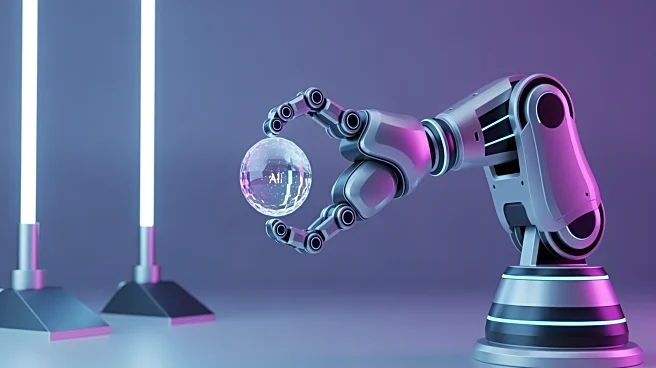What's Happening?
Square Enix has announced its intention to automate 70% of its Quality Assurance (QA) processes using generative AI by 2027. This initiative is part of a collaboration with the University of Tokyo's Matsuo-Iwasawa Laboratory. The company aims to enhance
the efficiency of its QA operations and gain a competitive edge in game development. This move is detailed in a progress report related to Square Enix's Mid-Term Business Plan. The partnership involves a research team comprising over ten members, including researchers from the Matsuo-Iwasawa Laboratory and engineers from Square Enix. The company has been promoting AI utilization in Japan, with a focus on creating foundational stability. Square Enix has previously expressed interest in AI, the Metaverse, and blockchain games, having launched a blockchain game called Symbogenesis in 2023.
Why It's Important?
The decision by Square Enix to integrate AI into its QA processes could significantly impact the gaming industry by setting a precedent for other companies. Automating QA could lead to faster game development cycles and potentially reduce costs. However, it may also raise concerns about job displacement within the industry. The use of AI in game development could enhance the quality and complexity of games, offering players more immersive experiences. This move aligns with broader trends in the tech industry, where AI is increasingly being used to streamline operations and innovate product offerings. Stakeholders in the gaming industry, including developers and players, may experience both benefits and challenges as AI becomes more integrated into game development processes.
What's Next?
Square Enix's continued focus on AI and automation suggests that the company will likely invest further in AI research and development. The collaboration with the University of Tokyo may lead to new technological advancements that could be applied across various aspects of game development. As the company progresses towards its 2027 goal, it may face scrutiny from industry professionals and labor organizations concerned about the implications of AI on employment. Additionally, the success of this initiative could influence other gaming companies to adopt similar strategies, potentially reshaping the landscape of game development.
















